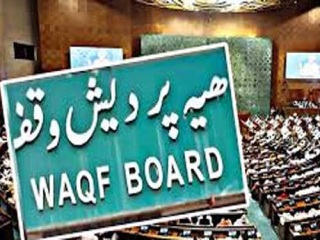7 other petitions on the same issue are still pending

New Delhi – On April 1st, the Supreme Court dismissed a petition challenging the validity of the provisions of the Places of Worship (Special Provisions) Act, 1991. The court stated that the petition was not distinct from the already pending challenge petitions. However, the Supreme Court permitted the petitioner, Advocate Ashwini Kumar Upadhyay, to file his application under the pending cases challenging the Act. Earlier, on February 17th, the Supreme Court had deferred the hearing of seven petitions related to the Places of Worship Act.
Supreme Court rejects a petition challenging the Places of Worship Act 🚨
7 other petitions on the same issue are still pending.
Why do Hindus need to go to court to get this law revoked?
The central government, with its majority, should repeal it in Parliament. After all,… pic.twitter.com/ZN4DK3uAzz
— Sanatan Prabhat (@SanatanPrabhat) April 2, 2025
Advocate Ashwini Kumar Upadhyay’s petition challenged Section 4(2) of the Places of Worship (Special Provisions) Act, 1991, which prohibits any action that alters the religious character of a place of worship, including temples, shrines, and other religious sites. The provision also bars the filing of fresh cases related to such matters.
On behalf of Hindus, Advocate Mr Ashwini Kumar Upadhyay, Dr. Subramanian Swamy, storyteller Devkinandan Thakur, Rajkumari Krishna Priya of Kashi, Swami Jitendranand Saraswati, retired Army officer Anil Kabotra, Advocate Chandrashekhar, Rudra Vikram Singh from Varanasi, and several others have filed a petition. They have demanded that the Places of Worship Act, 1991, be declared unconstitutional.
On behalf of Muslims, Jamiat Ulama-e-Hind, the All-India Muslim Personal Law Board, the Anjuman Intezamia Masjid Committee (which manages Gyanvapi), Rashtriya Janata Dal MP Manoj Jha, and MP Asaduddin Owaisi have also filed petitions in this matter. They have argued that if petitions challenging the law are entertained, it could lead to a flood of cases against mosques across the country.
Editorial PerspectiveWhy do Hindus have to approach the court to get this law repealed ? The Union government, which holds a majority, is expected to repeal this law by introducing a bill in Parliament. It should be remembered that the Congress, when it was in power with a majority, had passed this law in Parliament to appease Muslims ! |

 Religious fanatic arrested for sexually assaulting and murdering a minor boy
Religious fanatic arrested for sexually assaulting and murdering a minor boy Conditional nod from Calcutta High Court for Shriram Navami procession in Howrah, West Bengal
Conditional nod from Calcutta High Court for Shriram Navami procession in Howrah, West Bengal Withdraw ‘Waqf Bill’ else there will be protests : Threatens Jamiat Ulema-e-Hind’s Mufti Mohammad Akbar Qasmi
Withdraw ‘Waqf Bill’ else there will be protests : Threatens Jamiat Ulema-e-Hind’s Mufti Mohammad Akbar Qasmi Raza Academy threatens to take to the streets over the Waqf Amendment Bill
Raza Academy threatens to take to the streets over the Waqf Amendment Bill Waqf (Amendment) Bill passed in Rajya Sabha at 2.30 a.m.
Waqf (Amendment) Bill passed in Rajya Sabha at 2.30 a.m. The country’s first ‘Hindu village’ will be established in Chhatarpur (Madhya Pradesh)
The country’s first ‘Hindu village’ will be established in Chhatarpur (Madhya Pradesh)